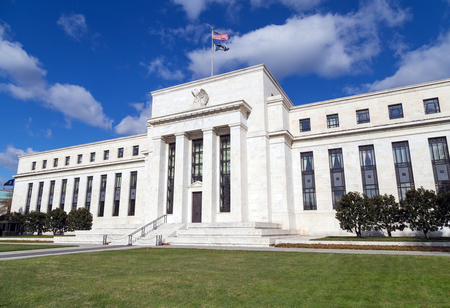
US Fed Foists New Limits on Policymakers' Investments

 The Federal Reserve is applying a broad new set of restrictions on the investments its officials can own. The US Fed on October 21 announced that its policymakers and senior staff would be barred from investing in individual stocks and bonds. They would also have to provide 45 days' advance notice of any trade and receive prior approval from ethics officials. And they would have to hold the investments for at least a year.
The Federal Reserve is applying a broad new set of restrictions on the investments its officials can own. The US Fed on October 21 announced that its policymakers and senior staff would be barred from investing in individual stocks and bonds. They would also have to provide 45 days' advance notice of any trade and receive prior approval from ethics officials. And they would have to hold the investments for at least a year.
These senior officials will also have to sell any individual stocks or bonds they now own, as well as any category of securities, such as municipal bonds, that the Fed is buying as part of its economic support programs.
The new rules would also require Fed officials to publicly disclose all financial transactions within 30 days, and would bar trading during periods of “heightened financial market stress.” The central bank said it hasn't yet decided how to define such periods. In a statement, the Fed said it would incorporate the restrictions into its written policies “in the coming months.” Fed officials suggested that they might have to expand their legal staff to implement them.
In a statement, Chair Jerome Powell says, “These tough new rules raise the bar high in order to assure the public we serve that all of our senior officials maintain a single-minded focus on the public mission of the Federal Reserve.”
Powell, who is under consideration by the Biden administration for a second four-year term as Fed chair, has come under fire after it was revealed that two regional Federal Reserve Bank presidents traded stocks and other investments last spring. Although the trades complied with Fed financial ethics rules, they occurred while the Fed was taking expansive steps to boost the economy and calm financial markets. As a result, they raised the possibility of conflicts of interest, because the two officials could have profited from the Fed's actions.
One of the officials, Robert Kaplan, who was president of the Dallas Fed, made trades of $1 million or more in 22 stocks last year, including Apple, Facebook and Chevron.
The other official, Eric Rosengren, who was head of the Federal Reserve Bank of Boston, invested in funds that held mortgage-backed securities of the same type that the Fed was buying as part of its efforts to hold down longer-term interest rates.
Kaplan and Rosengren announced their resignations soon after the questionable trades came to light.
Ethics experts said the trades underscored how lax the Fed's rules were given its outsize influence over financial markets. The regional Fed bank presidents take part in private discussions about potential interest rate changes that stand to affect the financial markets. They can also move markets in their frequent public speeches, which typically reflect their inside knowledge of the Fed's policy discussions.